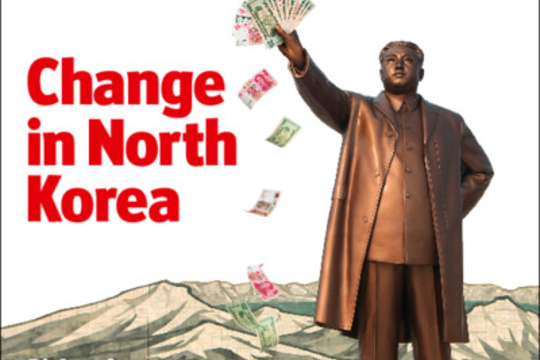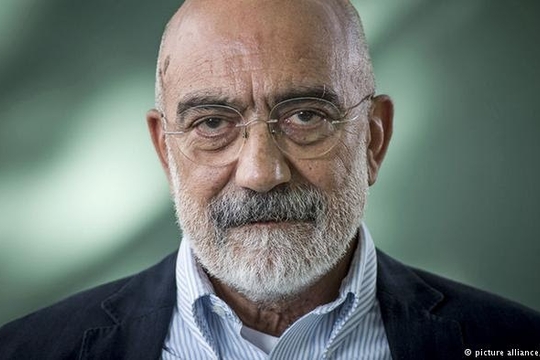

“Until recently, the outside world has known little about North Korean society. But during the past decade information has flowed—albeit illegally—both into and out of North Korea”, schrijft het weekblad. Twee verrassende evoluties worden daardoor duidelijk. De eerste is het ontstaan van een nieuwe klasse die haar geld verdient met illegale handel. In een commentaarstuk samengevat:
In the 1990s famine provided an opening for a new sort of North Korean trader. Many of them were smallholders, often women, selling vegetables grubbed up from the family plot. The facts are patchy, but it is becoming clear that other merchants operate today on a far more ambitious scale, exporting raw materials to China and bringing back consumer goods. The merchants use an informal system of money-changing to move funds in and out of the country. In the capital those with cash go to restaurants and play the slot machines. It sounds surreal, but they are the North’s nouveaux riches.
Het land kan niet meer zonder hen:
North Korea’s capitalists are here to stay. The regime has repeatedly tried to purge them, by suppressing the farmers’ markets and cracking down on smuggling. But money talks in today’s North Korea, and the traders often have enough cash to bribe their way out of trouble. Moreover, they have become an indispensable part of the economy. Industry functions so poorly that tower blocks in Pyongyang cannot be built without the imported supplies the merchants provide.
Een tweede evolutie is het belang van de hoofdstad. Dat is niet enkel de plek waar de nieuwe rijken hun geld spenderen, maar ook de Noord-Koreaanse overheid concentreert zich op Pyongyang.Daar wordt gezorgd voor betere infrastructuur en zelfs straatverlichting. In het achtergrondstuk:
Yet there is also a dash of Potemkin about Pyongyang. Behind the high-rises lie unpaved roads. Stephan Haggard and Marcus Noland, of the Washington-based Peterson Institute for International Economics, have referred to the Pyongyang illusion. They believe the authorities may not just want to improve the capital, but also to forestall an uprising among urbanites. And resources may be sucked from the rest of the country to pay for it. A widening gap also yawns between Pyongyang and the rest of the country. UN agencies reported a slight improvement in overall nutrition levels last year, but revealed a stark contrast between the level of stunting, or chronic malnutrition, among under-fives. The shares range from below 20% in the capital to almost 40% in Ryanggang province, part of North Korea’s most impoverished rural north.
Maar wie in afgelegen dorpen woont, kan altijd dromen van een beter bestaan:
Yet it is also possible that the brighter lights, firework displays and spruced up parks in Pyongyang are a cynical attempt to give unhappy citizens in the provinces somewhere else to yearn to live besides Seoul. It seems to be no coincidence that as the skyline of Pyongyang becomes more alluring, a severe crackdown is in force on TV dramas from South Korea and on escapes to South Korea via China: the numbers fleeing dropped by 44% last year, to 1,509.
Van een Noord-Koreaanse lente is vooralsnog geen sprake. “These entrepreneurs [de ondergrondse handelaren, pc] may eventually pose a threat to the regime, though they also have a stake in preserving the status quo if it enables them to make money”, schrijft het blad. Er zijn kleine bewegingen, en sommige Noord-Koreanen waren blij met het bezoek van Google’s Eric Schmidt, maar verder regeert de doffe ellende:
As yet there are no visible signs of protest. There appear to be no covert human-rights groups, despite the estimated 200,000 political prisoners who fester in concentration camps, and no subversive intellectuals, as in the former Soviet Union. […] Korean experts say the lack of resistance is not only the result of brainwashing. It is because North Korea’s tradition of oppression dates back to far before the Kims: for most of the first half of the 20th century its citizens were bossed around by the Japanese, and before that by a rigid monarchy. They know of little better.
Het artikel van The Economist staat hier, het commentaarstuk over hetzelfde onderwerp vindt u hier.




